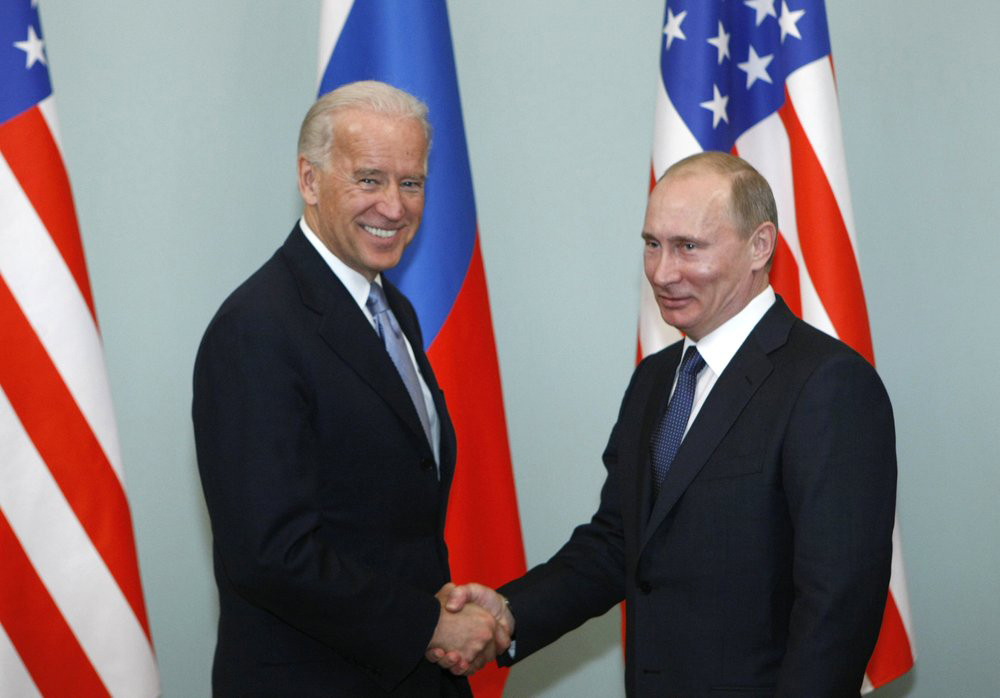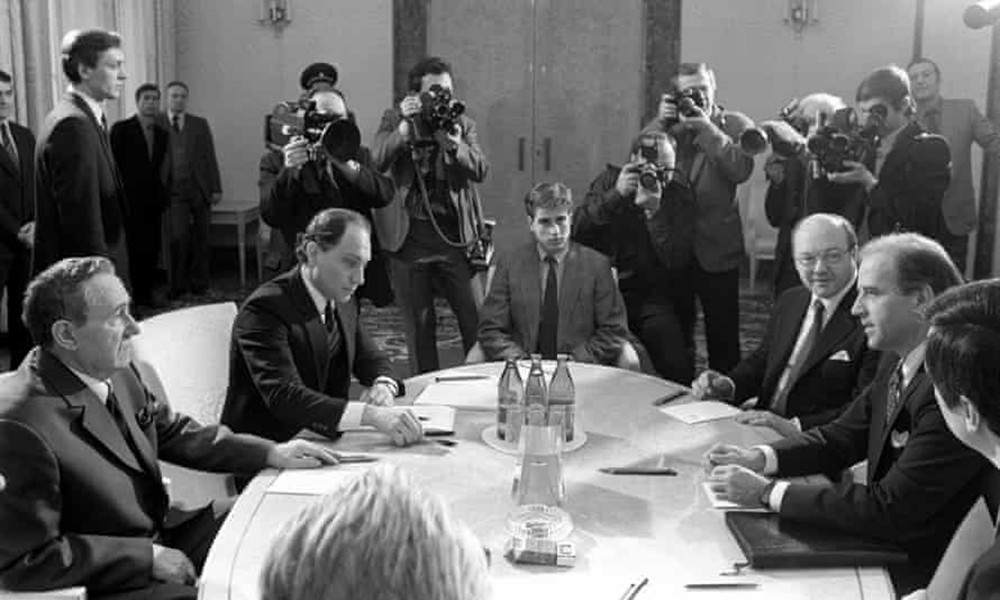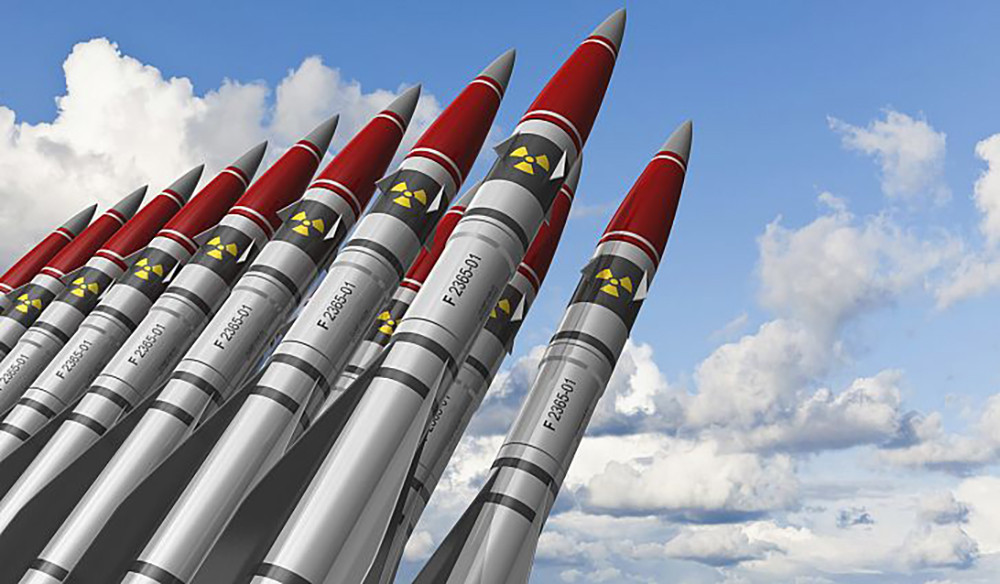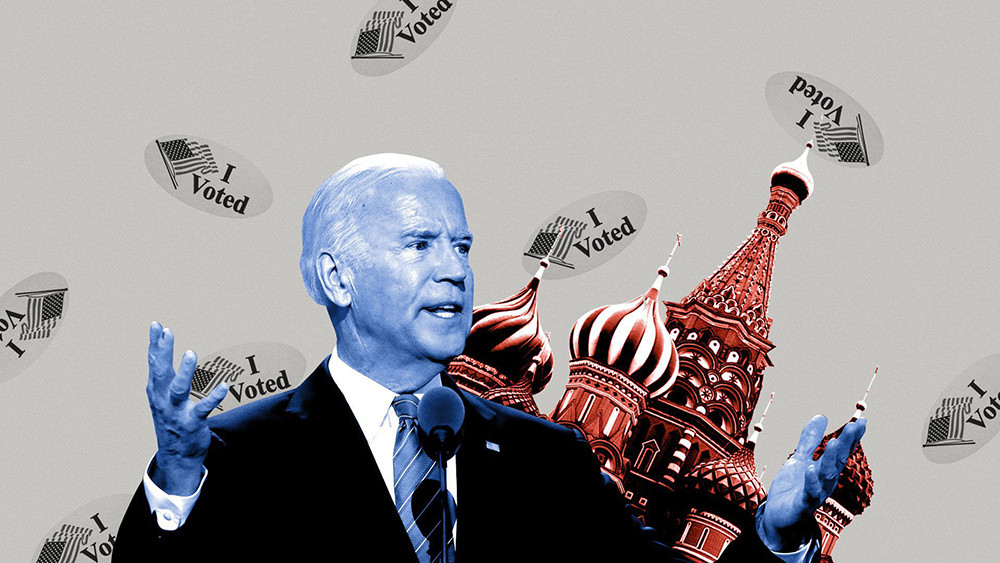Extending START, the US 'resets' relations with Russia?
(Baonghean.vn) - Immediately after the first phone call between new US President Joe Biden and Russian President Vladimir Putin, the Kremlin announced that the two sides reached an agreement to extend the New Strategic Arms Reduction Treaty (New START Treaty). Extending the New START Treaty is Joe Biden's first major foreign policy decision with Russia, and the positive nature of this decision makes many people think of a more friendly atmosphere in US-Russia relations under Joe Biden. But those who follow the cautious school believe that, with only the START Treaty, it is too early to expect the ability to "reset" US-Russia relations.
Timely decisions
According to the Kremlin's announcement, new US President Joe Biden and Russian President Vladimir Putin expressed satisfaction that the two sides had exchanged notes on reaching an agreement to extend the New START Treaty. Russian President Vladimir Putin also submitted a bill to the Russian State Duma to ratifyNew START extension agreement, and in the coming days, the two sides will urgently review the necessary procedures to complete the treaty extension before February 5 - the date the treaty expires.
 |
| As Vice President of Barack Obama, Joe Biden met with Vladimir Putin in 2011. Photo: AP |
This is a rapid and groundbreaking step considering the deadlock in the negotiation process to extend the agreement during the final months of President Donald Trump's term.
At that time, the US had put forward conditions that Russia considered unacceptable regarding China's participation or the addition of verification regimes for the implementation of the agreement. However, the new administration of Mr. Joe Biden has fundamentally changed its approach to the START issue, in line with the general foreign policy orientation of the US in the early stages of the new presidential term. That is the period when Mr. Joe Biden must focus on solving domestic problems such as the Covid-19 pandemic, restoring the economy and healing social divisions.
The quick extension of New START is considered a timely decision by Mr. Joe Biden, as the treaty will expire on February 5. If the treaty expires, the possibility of a new nuclear arms race will be a disadvantage, causing unnecessary difficulties for Mr. Joe Biden's new administration.
The US side also calculated that many points in the START Treaty were outdated and revealed shortcomings, so a 5-year extension would give Russian-US negotiators more time to build a new treaty, possibly with the participation of other countries such as France, the UK, and possibly even China.
New START is the last arms control treaty between Russia and the United States, so the legal framework of the treaty can be the only basis and foundation for moving towards further goals in the future.
 |
| Joe Biden (far right) visited the Soviet Union to discuss arms control in 1988. Photo: Getty |
However, within the US administration, there are also mixed opinions about Joe Biden's decision, considering it a disadvantageous decision for the US. Mr. Marshall Billingslea - Special Envoy for Arms Control of Donald Trump said that Joe Biden's decision "shows a serious lack of negotiating skills" and the new President's team has wasted the most important advantage that the US has with Russia.
A better approach for Russia, Mr. Billingslea said, would be to extend START for a short period based on the warhead production limits that President Putin has accepted. But this assessment also met with opposition from some experts who said that the Biden administration could still find other ways to pressure Russia regarding concerns about “tactical nuclear weapons” – weapons that Russia can deploy in conflict zones near its borders, different from strategic weapons aimed primarily at the United States.
In addition, President Joe Biden's proposal is also considered an important step to affirm the US's role in realizing the goal of a world without nuclear weapons.
Maintain the status quo
The extension of the New START Treaty is considered a positive step to improve trust between the US and Russia in the context of bilateral relations at a very low level, which can pave the way for initiatives to help the two countries return to resolve other important treaties, such as the Open Skies Treaty, which both Russia and the US have announced their withdrawal from.
But according to analysts, the extension of the New START Treaty stems from the US national security interests, so it is still too early to look at this step to judge the possibility of "resetting" US-Russia relations under Joe Biden.
 |
| Russia and the US reached an agreement to extend the New START Treaty. Photo: Anxios |
White House press secretary Jen Psaki also affirmed after the phone call between the two presidents that even when cooperating with Russia to promote US interests, the US always strives to hold Russia "accountable for its hostile and reckless actions."
The phone call on January 26 between Mr. Biden and Mr. Putin partly proved this assessment when, in addition to the START Treaty, Mr. Joe Biden directly mentioned a series of other hot issues in bilateral relations, including Russia's actions in Ukraine - an important ally of the United States.
Not only reiterated US support forUkraine's sovereignty, Mr. Joe Biden has bluntly accused Russia of being involved in four issues that the US considers "high-level security threats", even though Russia has always denied them: the cyberattack by the Russian technology company SolarWinds on private companies and US government agencies; Russia's efforts to interfere in US elections, including spreading false information about Mr. Joe Biden and his son Hunter Biden; the accusation that Russia offered bounties to extremists in Afghanistan to kill US soldiers; and the accusation that Russia poisoned political opponent Alexei Navalny.
The contents of the first phone call conveyed Mr. Biden's clear message: the United States will act decisively to protect national interests against Russia's actions, including implementing sanctions to ensure Russia will never be able to act recklessly without considering the consequences. Just before the call with Mr. Putin, Mr. Biden also called NATO Secretary General Jens Stoltenberg to affirm the United States' commitment to establishing a "bulwark against Russian aggression."
 |
| Mr. Biden is said to have a tougher approach to Russia than his predecessor, Donald Trump. Photo: Getty |
In fact, from the beginning, many people were cautious about US-Russia relations under Joe Biden. Although he took office only last week, Joe Biden has a long history of working with Russia, mostly in a rather cold way. As early as 1988, near the end of the Cold War, Joe Biden, then a senator, traveled to the Soviet Union to negotiate arms control.
Later, when he was Vice President for Barack Obama, Joe Biden had more opportunities to work with Russia, and Biden once made a comment about President Putin that the media repeatedly mentioned, which was "I don't think he has a soul." Russia itself does not expect to improve relations with the US when Joe Biden becomes President. Even when Joe Biden was still running for election, the Kremlin condemned his "anti-Russian rhetoric." Some current senior Russian officials also admit that President Biden is likely to maintain a more hostile stance towards Russia than his predecessor Donald Trump, so Russia "does not expect anything good."
Although Russia and the US still have too many doubts about their opponents, analysts believe that in the early stages of his term, Mr. Joe Biden will have a "status quo" approach, meaning not causing further damage to bilateral relations with Russia, but also not having an urgent need to heal existing damage.
Statements by Mr. Joe Biden himself and officials in Washington up to this point show that the US side does not hope to "reset" relations with Russia, and instead will control differences well, avoiding escalating tensions to a new level for the benefit of the US itself.

